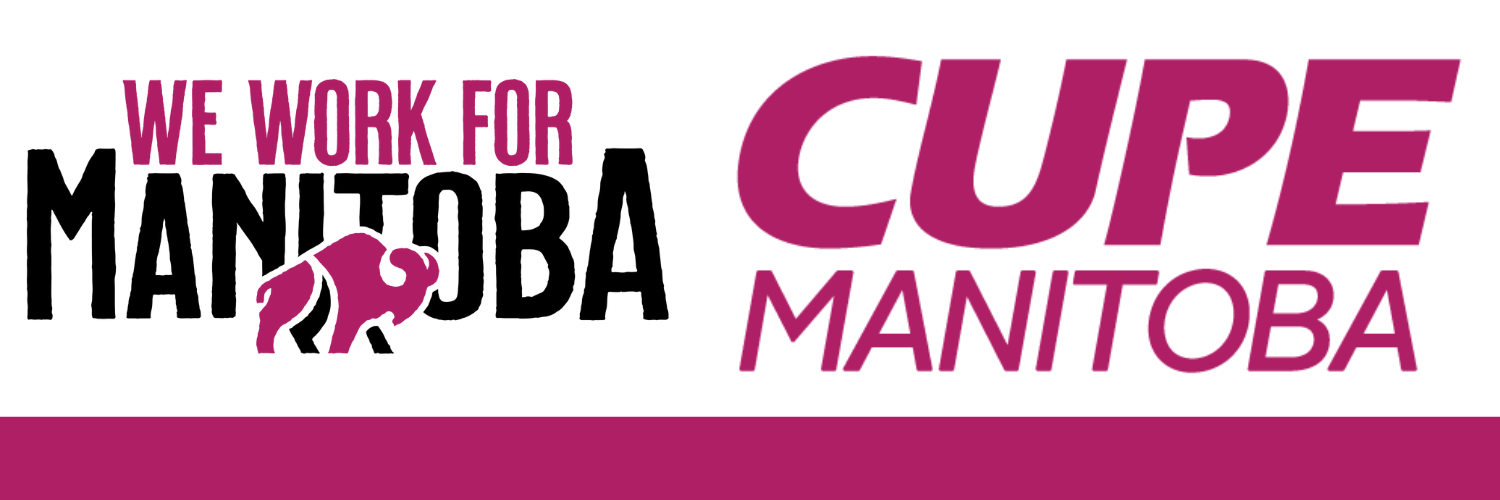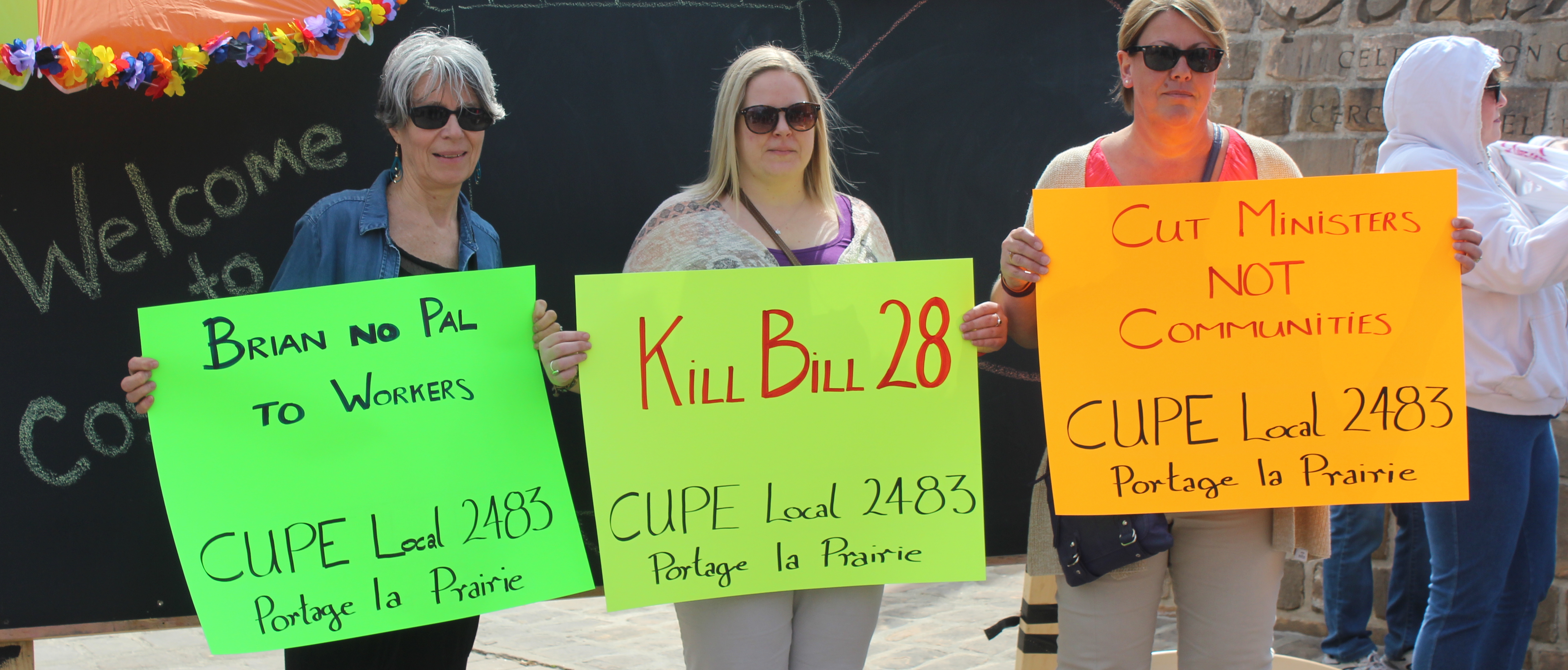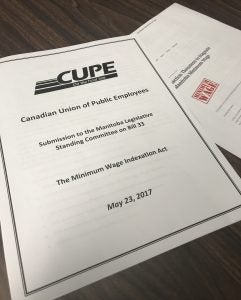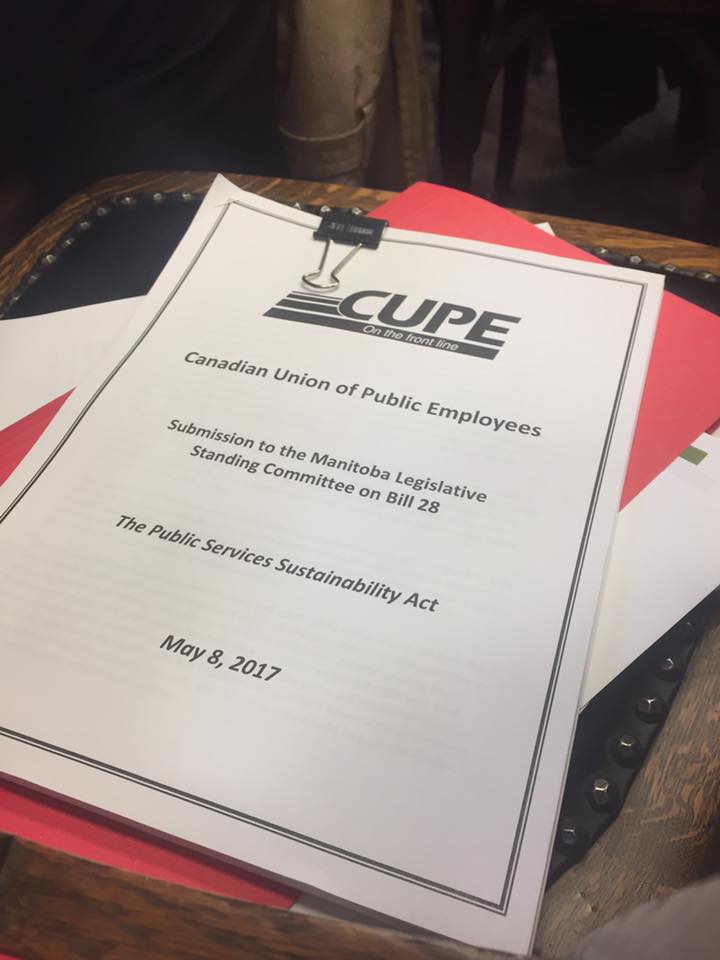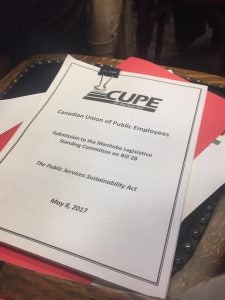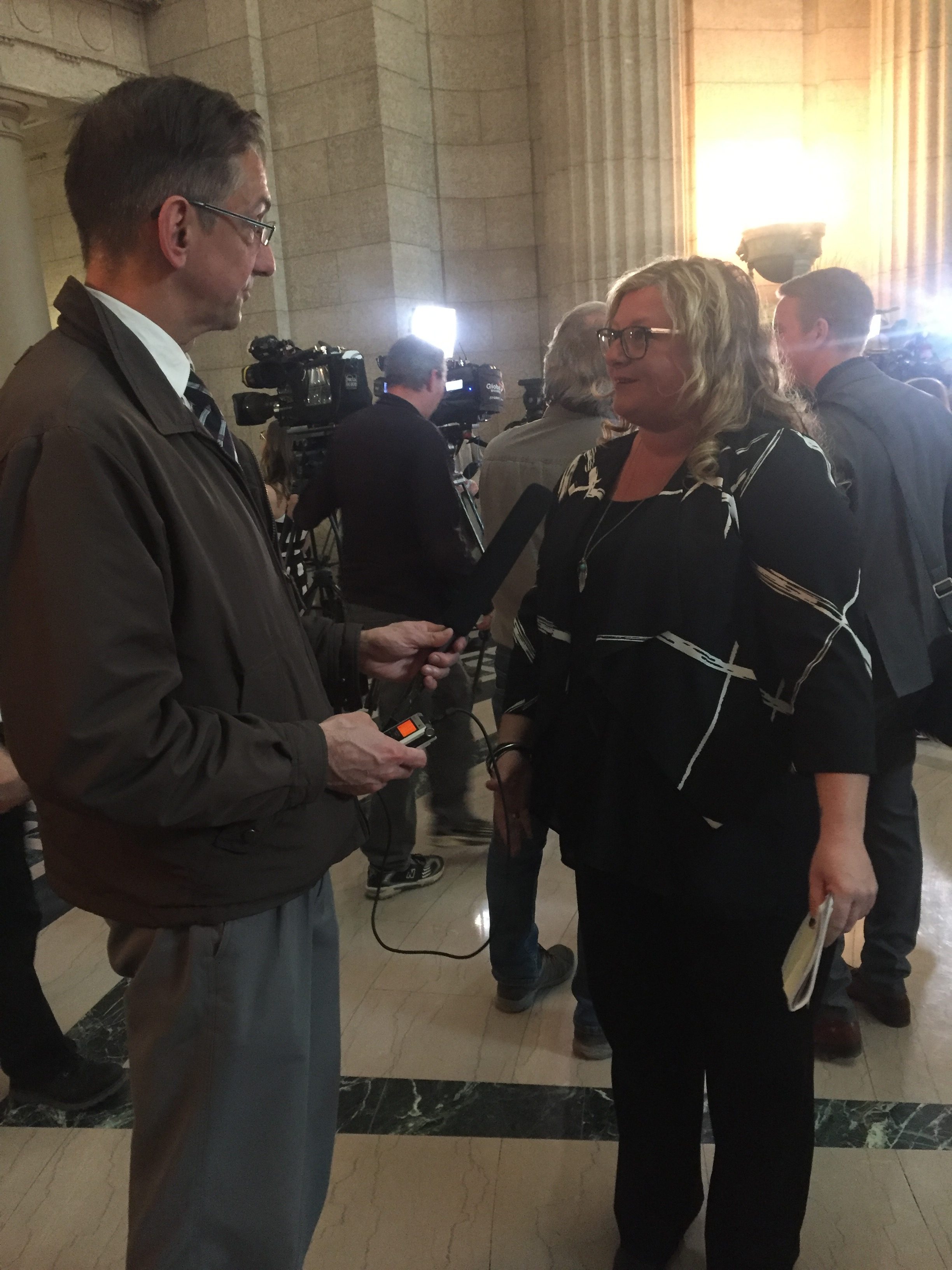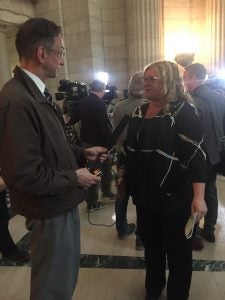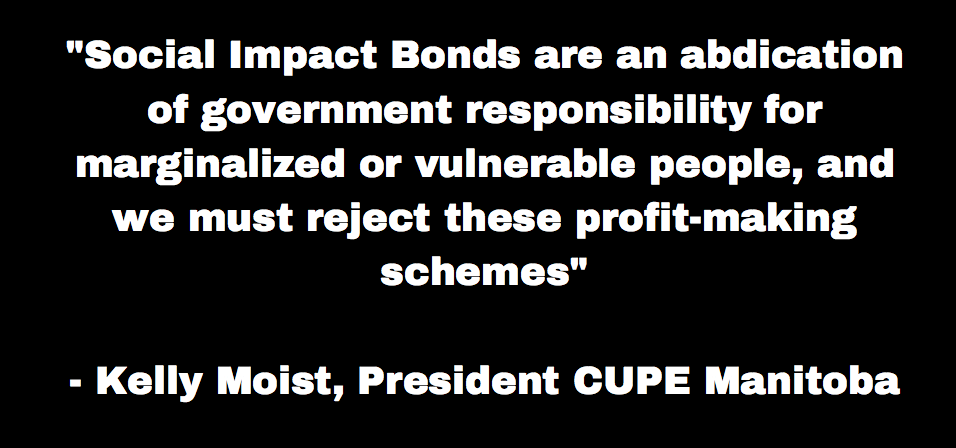The Premier of Manitoba campaigned on protecting front line services and the workers who provide them. Now he’s attacking the public services he promised to protect. His latest idea is legislating unpaid days off for public employees.
Unpaid days off aren’t new, they aren’t innovative, they aren’t worker friendly, and they’re bad for Manitobans and the economy.
Here’s why we should resist unpaid days off:
1. Pallister Has No Mandate to Impose Unpaid Days Off
Brian Pallister and the Progressive Conservatives repeatedly promised during the last election that they would protect public services and the people that provide them. After the election, Pallister publicly confirmed his commitment.
After less than a year as Premier, Pallister seems to have forgotten his public services promise.
Politicians are in positions of power. They have a responsibility to be honest with the people they represent, to keep their promises, and to be up-front about any proposed cuts to services before the election – not after. Breaking an election promise is the worst kind of politics.
2. Manitobans Need More Services, Not Less
Governments at all levels in Canada have tried to reduce government’s role as a provider of public services. Public services that the average person depends on have suffered, while corporate taxes and taxes on the wealthy have gone way down. CUPE members who deliver important public services know this all too well. Public infrastructure has been neglected, user fees added, and services cut.
Every day, CUPE members hear directly from frustrated citizens who want more, not less service.
Rather than cutting services, the government of Manitoba should be looking to improve public services!
3. Legislated Unpaid Days Off are a Violation of our Human Rights
The right to form and join a union is part of the 1948 Universal Declaration of Human Rights. Our Canadian Charter of Rights and Freedoms includes the rights of workers to join and form unions, to engage in free collective bargaining, and to go on strike.
Imposing unpaid days off through legislation circumvents and ignores the collective bargaining process, and violates our basic human rights.
Changes to collective agreements (group contracts) must be negotiated, not imposed. Neither unions nor governments can change collective agreements without the other’s consent.
Regardless of whether you personally like the idea of a reduced work week, any move by the government to impose unpaid days off should be treated as an attack on our rights as workers.
4. There is no Fiscal Crisis
The Pallister government has stated that Manitoba is in a fiscal crisis, yet this assertion is contradicted by almost every measure of the economy. Manitoba continues to be amongst the best economies in Canada, with relatively low unemployment and above-average economic growth. This is partly thanks to a diverse economy and government investment in public services and infrastructure. In fact, the Trudeau Liberals ran on a platform of using the “Manitoba formula” to kick-start the Canadian economy.
Pallister’s plan to pull Manitoba out of its deficit quickly will require big job cuts in the public service. This would result in a serious reduction of public services, pressure those same social and economic programs, and a shrinking provincial economy. It’s not worth it.
Manitoba does face a billion-dollar deficit, but context matters. As a percentage of the economy, the deficit in 2016 was smaller than it was five years earlier, smaller than it was in the early 1990s, and half of what it was in the 1980s. Is this a challenge? Sure. Is it a crisis? Not really.
Others will argue that every dollar we spend on interest is a dollar that can’t be spent on services. True, but today’s record-low interest rates mean that the cost of debt is low. The cost of borrowing has shrunk from 2% in 2003-4 to 1.28% of provincial GDP. (GDP is the Gross Domestic Product, or the total value of domestic goods and services, not including income invested from outside Canada.)
5. CUPE Members Cannot Afford Unpaid Days Off
There is a myth that public-sector workers are overpaid.
This is not the case. The average wage in Manitoba is $44,900. A living wage is $31,100/year for a single parent with one child in Winnipeg. A sampling of full-time starting wages for unionized workers in different sectors ranges from $20,000 per year for an Education Assistant to $37,000 for a Health Care Aide. Part-time and casual workers may earn far less.
In the 1990s, government-imposed unpaid days off resulted in a 5% reduction in take-home pay for government workers in Ontario, and a 4% reduction in Manitoba.
A plan to balance the provincial budget on the backs of workers earning modest incomes is wrong.
Better Solutions
So, what is the solution to Manitoba’s budgetary challenges?
Ironically, Brian Pallister was on the right track at one time. In 2016, the Premier promised to get the budget back to balance over eight years. This could still be done.
Of course, the provincial government could also introduce new tax brackets for higher income earners, raise corporate income taxes, work with the Federal government to close tax loopholes for the wealthy, or implement a carbon tax. Pallister continues to ignore the revenues side of the ledger.
It’s time to remind Premier Brian Pallister to keep the public services promise.
Download (PDF, 502KB)

